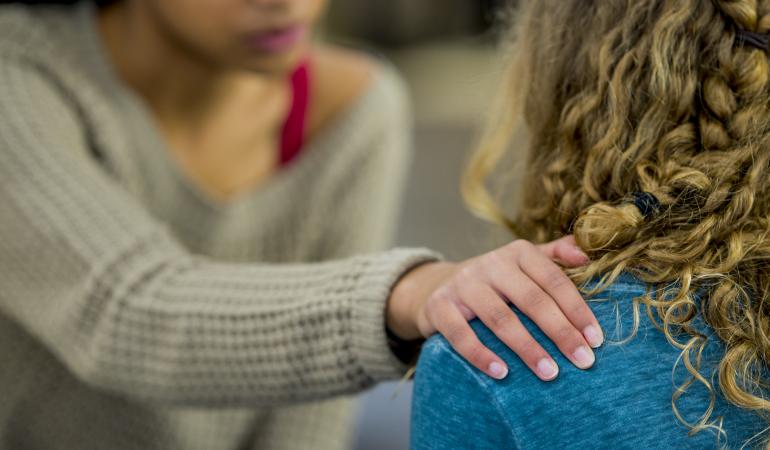
Even after a period without any coronavirus measures, the number of young people (aged 12-25 years) with serious suicidal thoughts remains high (16%) in the Netherlands. After nearly doubling in the last lockdown period (from 9% in autumn 2021 to 17% between December 2021 and February 2022), there has been almost no reduction in this percentage. These findings are from the fourth quarterly survey among young people in the GOR Network (comprised of RIVM, GGD GHOR Nederland, Nivel and ARQ National Psychotrauma Centre).
The number of GP visits related to suicide have also remained steady compared to the first three months of 2022; these figures are still more than one-third (39%) higher than before COVID-19. This includes GP appointments related to suicidal thoughts as well as attempted suicide (also attempts ending in death). In addition, there are still many young people with psychological problems (37%), loneliness (49%) or stress (49%).
Are you thinking about suicide or are you worried about a friend or loved one? Talking about it helps. You can remain anonymous. Contact the suicide prevention hotline by chat (www.113.nl) or phone (call 113, or call toll-free on 0800-0113).Mostly caught up on backlog of delayed care
Things seem to be improving in other areas. The responses from the young people participating in the study indicate that they have caught up on a significant percentage of the delayed care that was postponed due to the coronavirus measures. They also reported a slight decrease in physical symptoms (from 57% in March 2022 to 53% in this survey round) and slightly more than half of those surveyed felt confident or very confident about the future (51%, rising by 4 percentage points).
Impact of COVID-19 period on personal development
In this fourth survey round, the participating young people also answered open questions, such as a question about the impact that the COVID-19 period still has on their lives now. According to their answers, it had a major impact, for example resulting in learning deficits. They also felt that they had missed out on important years of their lives, because their social contacts diminished and they experienced mental and physical symptoms, such as anxiety and fatigue.
No more coronavirus measures, or faster intervention
Various young people answered the question about their hopes and desires for the future, for example about how to respond to a new wave of infections. A majority (57%) stated that they did not want to see any more coronavirus measures. The young people who did want measures (34%) hope that faster intervention can prevent stricter measures, such as a lockdown or curfew. Young people also want the government to come up with a plan for responding to pandemics. They want social interaction to remain possible, and for policy-makers to give more consideration to mental health. Young people also hope to see increased respect for different opinions and a less divided society.
About the research programme
The COVID-19 pandemic caused a crisis that is lasting a long time. Much is known about the impact of short-term crises (such as a major accident or natural disaster). Little is known about the impact of slow-moving, long-term crises and how they affect physical and mental health. The GOR Network is compiling more knowledge on this topic in a research programme known as the Integrated Health Monitor COVID-19. The monitor compiles information once every quarter and once a year. This will allow policy-makers to take effective measures in response to the current crisis and similar situations in the future. This programme was commissioned by the Netherlands Organisation for Health Research and Development (ZonMw) and the Ministry of Health, Welfare and Sport (VWS).
On 31 August 2022, RIVM adjusted a few percentages from the third round of the youth survey. RIVM conducted in-depth analysis that revealed several errors in the data that had been provided. As a result, some percentages were lowered. These adjustments have no impact on the conclusions. This news item uses the new, corrected percentages.